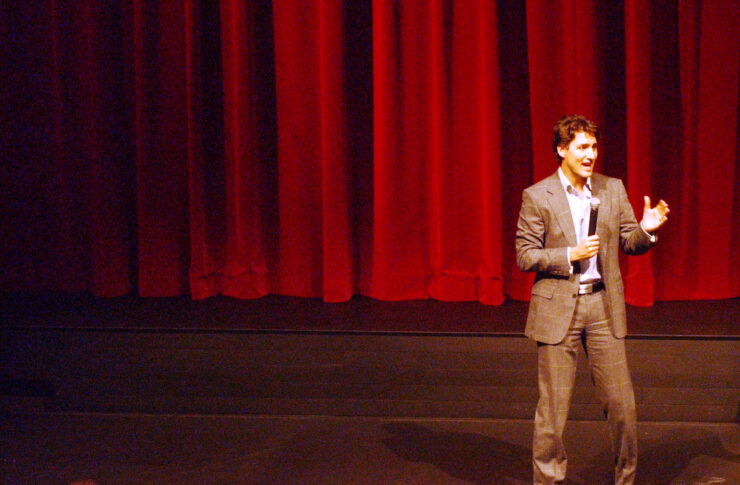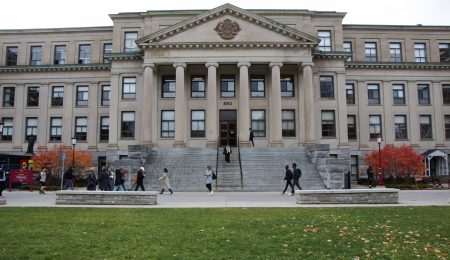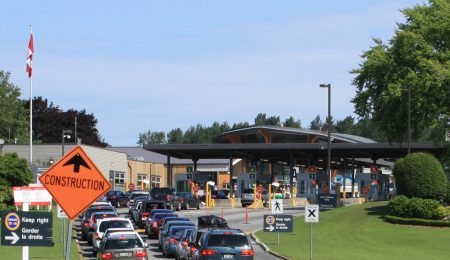On Tuesday, Nov. 28, Prime Minister Justin Trudeau will deliver an apology to LGBTQ+ Canadians who faced discrimination—or worse—as a result of government policies and practices.
As it stands, the apology will largely centre around former members of the military and public servants who lost their jobs or were prosecuted because of their respective queer or trans identities, from the 1950s until 1992.
The CBC shares the story of Martine Roy, a lesbian woman serving as a medical assistant with the Canadian Armed Forces. When she was just 20 years old, military police forced her to disclose her sexual orientation, and she consequently underwent psychological testing and was discharged from the military a year later.
For people such as Roy, who faced termination of employment for something out of their control, this apology is much needed. It demonstrates a recognition by our government that these discriminatory former policies and practices had detrimental social, economic, and psychological impacts on the LGBTQ+ individuals that they targeted.
In May of this year, Randy Boissonnault, Liberal member of parliament and special advisor to the Prime Minister on LGBTQ2 issues, told the CBC that the government has been working with “all facets” from the LGBTQ+ community and that the apology “is comprehensive and that it takes into account a broad range of the stories and the lived experience of Canadians.”
For such an apology to truly be comprehensive, it needs to extend beyond termination of employment, and recognize that discrimination against queer and trans Canadians is not a thing of the past.
Queer and trans Canadians still feel unsafe holding their partner’s hand in public, and according to Global News, police reported 155 hate crimes in 2014 on the basis of sexual orientation. Statistics Canada also reports that hate crimes motivated by sexual orientation are more likely to be violent than hate crimes against other groups, and from 2010 to 2013, two-thirds of hate crimes against sexual minorities were violent.
And those are just the crimes that are reported. For many LGBTQ+ Canadians, reporting a hate crime can be dangerous in itself, especially in smaller communities where the victim may not be publicly open about their sexual orientation or gender identity.
A recent cross-Canada survey of 1,897 LGBTQ+ Canadians and 800 heterosexual, cisgender Canadians revealed that the Atlantic provinces have the least support resources available for queer and trans people, and that workplace discrimination on the basis of sexual orientation or gender identity is still very real.
Mental health disparities are also rampant among queer and trans Canadians, specifically for youth, with higher rates of suicide than their heterosexual, cisgender peers. The rates of mental illness and violence are even higher for queer people of colour.
If Mr. Trudeau wants to deliver an apology that truly is comprehensive, then he needs to apologize not just for the former policies and practices of our government, but for the fact that queer and trans Canadians are still suffering today.
In examining our current legislation, the Canadian Human Rights Act was amended in 1996 to include sexual orientation as a prohibited ground of discrimination. The passing of the Civil Marriage Act in 2005 allowed same-sex couples to marry. The passing of Bill C-16 last November added protections for transgender people to the Human Rights Act.
These are valiant strides towards equality for queer and trans Canadians, but certainly not enough.
In Ontario, 50 per cent of trans people live off less than $15,000 annually. Men cannot donate blood if they have had sex with another man in the last year. Women’s shelters across the country can deny services to trans women. These facts and statistics reflect the reality that while we have the legislation in place to ensure that discrimination on the grounds of sexual orientation and gender identity and expression do not occur, it continues to persist.
An apology is a great start. It is a sign that our government recognizes its discriminatory past and is working to take action moving forward. What exactly should this action look like?
Increasing the number of gay-straight alliances in schools would provide an opportunity for young Canadians to express their sexual orientation or gender identity in a safe environment, as well as allow their heterosexual, cisgender classmates to learn about the issues impacting the LGBTQ+ community. The same can be said about increasing the number of community spaces for queer and trans teens and young adults. More training should be given to physical and mental health care providers to better treat LGBTQ+ patients, especially those who are racialized. More efforts should be made to end the blood ban, and increase social services for queer and trans Canadians, especially in smaller communities and the Atlantic provinces.
Mr. Trudeau’s apology will hopefully pave the way for making Canada a more safe and inclusive environment for all Canadians, regardless of sexual orientation or gender expression. It can also serve as an example for other countries to take strides to protect their own vulnerable populations who do not have the freedoms we have here in Canada. Come Tuesday, and everyday after that, let’s hope that we see a more promising future for those who are still fighting for the equality they deserve.





